
- Appointments
- Awards
- Bills & Acts
- Books & Authors
- Committees
- Deaths
- Defence
- Economic
- Environment
- Finance
- Important Days
- International
- Miscellaneous
- National
- Persons in News
- Places in News
- Regional
- Reports
- Resignations
- Science & Technology
- Sports
- March 2020 - Exams Resources
- Current Affairs - Quiz
- Current Affairs - Test
- Current Affairs - PDF
Current Affairs March 2020 - Finance
1 - NABARD infused Rs 1.46 lakh cr in rural banking system during current fiscal

National Bank for Agriculture and Rural Development (NABARD) has infused 1.46 lakh crore rupees in the rural banking system during the current fiscal. 66,397 crore rupees have been given in short-term credit and 6,704 crore rupees in long-term credit to rural cooperative banks.
Regional rural banks have availed 14,141 crore rupees in short-term credit and 8,417 crore rupees in long-term credit. In addition, other banks, including small finance banks, have obtained long-term refinance of 37,895 crore rupees.
2 - Cabinet approved Mega Consolidation in Public Sector Banks

The Union Cabinet approved the mega consolidation of ten PSBs into four which include the −
Amalgamation of Oriental Bank of Commerce and United Bank of India into Punjab National Bank.
Amalgamation of Syndicate Bank into Canara Bank.
Amalgamation of Andhra Bank and Corporation Bank into Union Bank of India.
Amalgamation of Allahabad Bank into Indian Bank.
The amalgamation would be effective from 1.4.2020 and would result in creation of seven large PSBs. The Mega consolidation would help create banks with scale comparable to global banks and provide impetus to amalgamated entities.
3 - SEBI SCORES mobile app launched by SEBI for investors to lodge grievances

Securities and Exchange Board of India (SEBI) has launched a mobile application SEBI SCORES for convenience of investors to lodge grievances in Sebi Complaints Redress System (SCORES). The mobile app will not only encourage investors to lodge their complaints on SCORES but also provide all features that are currently available in SCORES.
SCORES is a platform for investors to lodge online complaints with SEBI against listed companies, registered intermediaries and market infrastructure institutions.
4 - Government imposed Rs 50,000 withdrawal limit on Yes Bank account holders
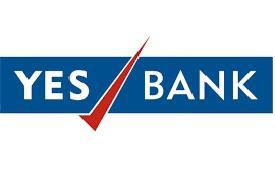
The Union Government of India imposed a withdrawal limit of 50,000 rupees for depositors of private lender Yes Bank for one month. The limit on withdrawal comes with a few exemptions, in cases like unavoidable emergency.
The board of Yes Bank has been superseded by the Reserve Bank of India for a period of 30 days owing to serious deterioration in the financial position of the private lender. Former SBI CFO Prashant Kumar has been appointed as administrator of Yes Bank. SBI Board has given in-principle approval to invest in the capital-starved Yes Bank.
5 - IIT Mandi signed deal with NABARD for setting up FPOs
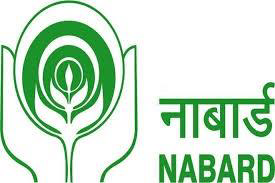
The Indian Institute of Technology (IIT), Mandi & Enabling Women of Kamand (EWOK) Society inked a tripartite deal with the National Bank for Agriculture and Rural Development (NABARD) for setting up three Farmer Producer Organizations in Mandi, Himachal Pradesh. It will be built at the cost of Rs 35 lakhs for 3 FPOs to be established in the next 3 years.
EWOK is an initiative of IIT Mandi Womens Center to aid rural women set up small enterprises in 5 panchayats of Kataula, Katindhi, Navlaya, Batheri and Kamand in Mandi by giving them proper guidance, training & information.
6 - RBI announced US dollar sell/buy swap to provide liquidity to foreign exchange market
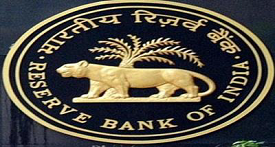
Observing mismatch in US dollar liquidity across the world, the Reserve Bank has announced a six month US dollar sell/buy swap to provide liquidity to the foreign exchange market. The level of forex reserves, which stood at 487.24 billion dollars as of 6th March, remained comfortable to meet any exigency.
The financial markets faced intense selling pressures due to corona virus infection. The volatility in global markets spiked by a slump in international crude prices and a decline in bond yields in advanced economies.
7 - State Bank of India to buy shares worth 7,250 crore rupees of Yes Bank
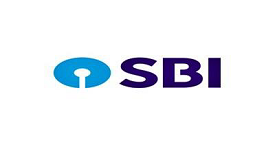
The State Bank of India will buy shares worth 7,250 crore rupees of the cash-strapped Yes Bank in accordance with the draft reconstruction scheme envisaged by the Reserve Bank of India. The board of SBI has permitted the purchase of the private lender's shares at a price of 10 rupees per share subject to all regulatory approvals.
According to RBIs reconstruction scheme, the strategic investor was not only supposed to pick up 49% stake but assure that the holding will not fall below 26% for a minimum period of three years from the date of capital infusion.
8 - Parliament passes Vivad Se Vishwas Bill for settlement of Direct Tax disputes

Parliament has passed the Vivad Se Vishwas Bill, 2020. The bill provides a waiver on interest, penalty and prosecution for settlement of Direct Tax disputes. It grants a complete waiver on interest and penalty when the disputed amount is paid before 31st March, and provisions an additional 10% of the disputed amount in cases where the settlement is made by 30th June 2020.
The Bill only governs disputes related to Direct Tax and not litigations related to wealth tax. Cases above five crore rupees are excluded under the ambit of this bill.
9 - US Federal Reserve slashed key interest rate to almost zero
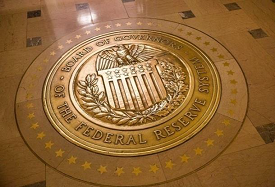
The US Federal Reserve slashed the key interest rate to virtually zero in response to the growing economic impact of the new corona virus. The Fed made its second emergency rate cut in less than two weeks, cutting the benchmark borrowing rate to a range of 0-0.25%.
The central bank also announced massive asset purchases, opened its discount lending windows to banks. It also removed bank reserve requirements to allow them to use cash backstops. The action was coordinated with the European Central Bank, Bank of England, Bank of Japan, Bank of Canada and the Swiss National Bank.
10 - Cabinet approved reconstruction scheme for Yes Bank

The Union Cabinet has approved a reconstruction scheme for Yes Bank as proposed by the Reserve Bank of India. State Bank of India will invest 49% equity in Yes Bank with other investors also being invited. SBI will invest Rs 7,250 crore in Yes Bank.
There will be a three-year lock-in period for all the investors. However, the lock-in period for SBI would be only for the 26% of the shareholding. The authorised capital of Yes Bank has been increased to Rs 6,200 crore from Rs 1,100 crore. The RBI removed the moratorium imposed on Yes Bank wef March 19.
11 - Yes Bank reported Rs 18,564 crore loss for Q4, 2019
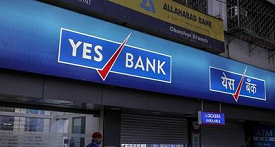
YES Bank has reported a staggering Rs 18,654-crore loss for the December quarter due to higher recognition of dead assets on the books and an erosion of capital buffers to the brink. The gross non-performing assets shot-up to Rs 40,709 crore or 18.87% of assets as of December 31, 2019. This forced the bank to set aside Rs 24,765 crore as provisions.
The bank has a dip of over Rs 44,000-crore in its deposits between September and December to Rs 1,65,000 crore. It also had a sharp decline in interest earned, suggesting a dip in advances.
12 - RBI lowered single, group borrower limit for urban cooperative banks
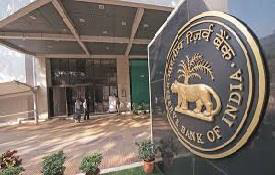
The Reserve Bank of India (RBI) lowered the single borrower and group exposure limit for urban cooperative banks (UCBs) to 15% and 25% of tier I capital, respectively, to reduce concentration risks arising out of such large loans. Existing norms allowed 15% for single borrowers and 40% to group exposures of a banks total capital, including tier I and tier II capital.
RBI also revised the priority sector lending (PSL) target for UCBs from 40% to 75% of the adjusted net bank credit (ANBC), or credit equivalent amount of off-balance sheet exposure (CEOBSE).
13 - DBS Bank & Bharti AXA teamed up for plans covering Covid-19

In order to ensure further safety of its customers, DBS India joined hands with Bharti AXA to roll out COVID-19 insurance cover. The plan would cover all medical conditions, including Covid-19, and up to 10 days of hospitalization, with a cover of Rs 5,000 per day, for a 30-day period. The insurance scheme is designed to give customers assurance, if they seek medical treatment.
Coronavirus disease 2019 (COVID-19) is an infectious disease caused by severe acute respiratory syndrome coronavirus 2 (SARS-CoV-2). The disease spread globally, resulting in the 201920 coronavirus pandemic.
14 - Manikaran Power became the first member to tie up with IGX

Manikaran Power Ltd (MPL) has become the first member of India's first gas trading platform which is called the Indian Gas Exchange (IGX). IGX is a part of Indian Energy Exchange (IEX). IGX is Indias first automated national level trading platform to promote and sustain an efficient and robust Gas market and to foster gas trading in the country.
MPL provides an electronic platform for trading of power at Indian Energy Exchange and Power Exchange India Limited, documentation and assistance in bilateral trading of power, REC trading and group captive.
15 - SIDBI launched Swavalamban Express to promote business aspirants
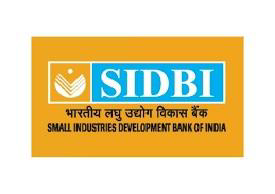
SIDBI launched Swavalamban Express to promote business aspirants. Swavalamban Express will begin from Lucknow and complete 15-day journey across India covering over 7000 kilometres. The entrepreneurship train will cover entrepreneurial cities Jammu, Delhi, Jaipur, Ahmedabad, Mumbai, Bengaluru, Hyderabad, Bhubaneswar, Kolkata and Varanasi as the final destination.
Swavalamban Express aims to promote budding business aspirants and entrepreneurs. Over 20 workshops and other programs will be organized during the journey. Swavalamban Express' is referred as Self-Employment Paathshala.
16 - SBI opened emergency credit line to meet any liquidity mismatch for its borrowers

State Bank of India has opened an emergency credit line to meet any liquidity mismatch for its borrowers to avoid businesses getting affected due to the novel coronavirus pandemic. The additional liquidity facility Covid-19 Emergency Credit Line (CECL) will provide funds up to Rs 200 crore and will be available till June 30.
The loan will be offered at an interest rate of 7.25% with a tenure of 12 months. Borrowers can avail maximum 10% of the existing fund based working capital limits, subject to a cap of Rs 200 crore.
17 - RBI injected additional Rs 30,000 cr to maintain financial stability in wake of COVID-19 outbreak
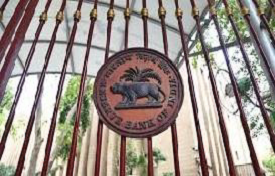
The Reserve Bank of India decided to infuse additional liquidity with a second tranche of bond purchase worth 30,000 crores amid the Covid-19 pandemic to ensure that all markets segments function normally with adequate liquidity and turnover.
The central bank conducted purchase of government securities under open market operations (OMOs) for an aggregate amount of Rs 30,000 crore in two tranches of Rs 15,000 crore each in March. RBI infused Rs 10,000 crore through open market operations on 20th March.
18 - Cabinet approved recapitalization of RRBs to improve their CRAR

The Cabinet Committee gave its approval for continuation of the process of recapitalization of Regional Rural Banks (RRBs) by providing minimum regulatory capital to RRBs up to 2020-21. The approval has been given for those RRBs which are unable to maintain minimum Capital to Risk Weighted Assets Ratio (CRAR) of 9%, as per the regulatory norms prescribed by the Reserve Bank of India.
The CCEA also approved utilization of Rs.670 crore as central government share for the scheme of Recapitalization of RRBs (i.e. 50% of the total recapitalization support of Rs.1340 crore).
19 - RBI decided to conduct variable rate Repo auctions for Rs 1,00,000 crores
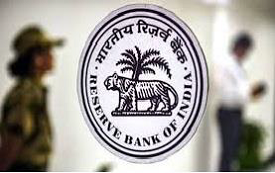
The Reserve Bank of India decided to conduct the variable rate Repo auctions for Rs 1,00,000 crores in two tranches, as a preventive measure to bridge over any frictional liquidity requirements caused by COVID-19. The RBI will conduct fine-tuning variable rate Repo auctions for Rs 1,00,000 crores in two tranches of Rs 50000 crore each.
The Reserve Bank is monitoring the evolving financial market conditions. The Reserve Bank will calibrate its operations to meet any need for additional liquidity support, if warranted, to ensure normal functioning of markets, promote staff welfare and preserve financial stability.
20 - SBI cuts repo rate by 75 basis points

State Bank of India has announced to pass on the entire 75 basis points repo rate cut announced by the Reserve Bank of India. The new rates are effective from 1st of April and would be applicable for its borrowers availing loans based on External Benchmark-linked lending rate, EBR and Repo-Linked Lending Rate, RLLR.
The equated-monthly installments on eligible home loan accounts, linked to EBR or RLLR will get cheaper by around 52 rupees per one lakh rupees on a 30-year loan.
21 - Decisions of Monetary Policy Committee (MPC)
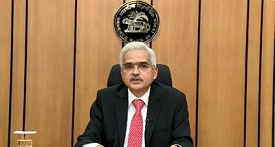
The Reserve Bank of India (RBI) announced the following decisions of Monetary Policy Committee (MPC) to adress the COVID-19 pandemic −
Cut in Repo Rate by 75 basis points to 4.4%
Reduced the Cash Reserve Ratio (CRR) of all banks by 100 basis points to 3% with effect from March 28 for 1 year providing total liquidity injection of Rs 3.74 lakh crore to the system in current scenario
Cut Liquidity Adjustment Facility by 90 bps to 4%
Reverse Repo Rate has been reduced by 90 basis points to 4%
3-month moratorium on payments of term loan installments (EMI) and interest on working capital
22 - RBI offered Rs 11,722 cr to banks through repo auction
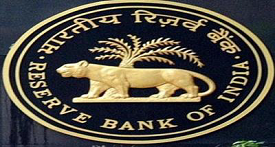
The Reserve Bank of India has offered Rs 11,772 crore to banks through a 12-day variable rate repo auction. Before the auction, the RBI enhanced the amount of auction to Rs 50,000 crore from Rs 25,000 crore.
In the auction, the central bank received Rs 11,772 crore of bids and allocated the entire amount at a cut-off rate of 5.16%.RBI will conduct another variable term repo auction of Rs 25,000 crore on March 31.
23 - ITR filing deadline for FY19 extended till 30 June

The government has extended various statutory deadlines related to income tax which were ending on 31 March, till 30 June considering the coronavirus (COVID-19) pandemic. Under the income tax laws, the due date to file ITR for a financial year ends typically on 31 July of the relevant assessment year. However, a belated return can be filed till 31 March of the same AY.
The government also allowed to make investments under Sec 80C till 30th June and continue to claim deductions for FY 2019-20. Aadhaar-pan linking deadline has also been extended to June 30.